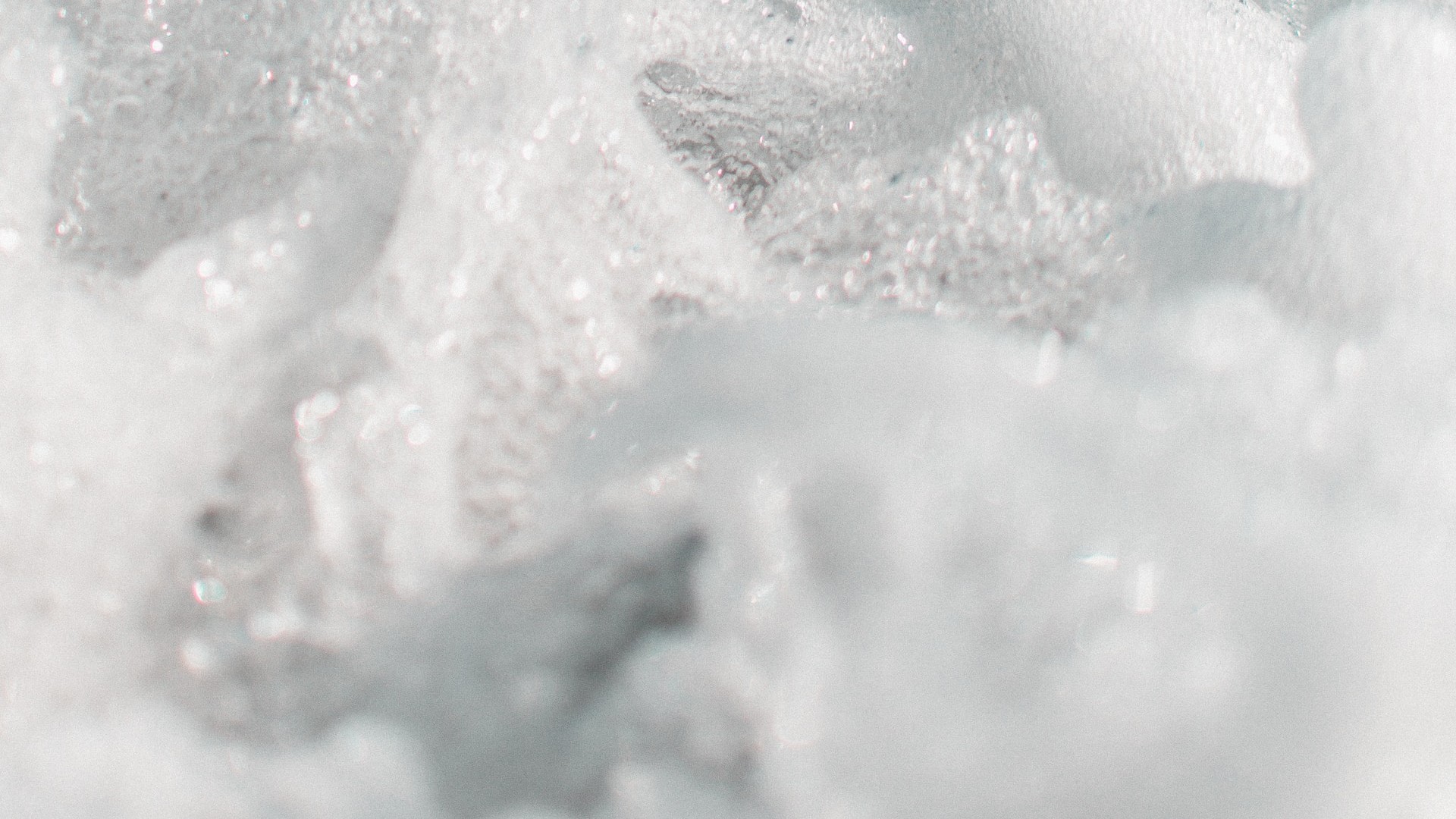Happy Sunday, everyone!
During our time running this blog, we've gotten a lot of questions about one subject in particular: low poo shampoos. And that makes sense - we do make those, after all! Every Formulate shampoo is made with zero sulfates, and is gentle on the hair and scalp. So yep, big fans of low-poo shampoos over here.
Below are some of the most common questions we've received over the years about low-poo, as well as our answers. We hope you find this info helpful!
What is a low poo shampoo?
A low poo shampoo is a funny name for a shampoo that cleanses the hair more gently than the average, off-the-shelf shampoo. Low poo shampoos have cleansing agents that are less aggressive than those in the average shampoo. Your hair will not feel "squeaky clean" after using one - it might even feel moisturized.
Who should use a low poo shampoo?
We think most people would benefit from using a low poo shampoo! They're pretty darn useful for cleansing the hair without inflicting unnecessary damage.
That being said, low poo shampoos are particularly useful for the following folks:
- People with sensitive scalps. Aggressive shampoos tend to aggravate itchy, dry, or painful scalps, so it makes more sense to go for a gentler product to cleanse the hair.
- People with curly hair. Curly hair is notoriously prone to damage, since the texture of the hair prevents sebum from the scalp from adequately moisturizing the ends of the hair. Low poo shampoos are helpful for preventing this hair type from becoming dried out and damaged.
- People with bleached or dyed hair. The very act of bleaching and dying your hair damages it quite a bit, so anything that you can do to prevent further damage is a good thing. Aggresive shampoos can also cause color-treated hair to appear faded prematurely, requiring a return trip to the salon sooner than expected. If you want to expand the amount of time you can go before you have to re-dye your hair, a low-poo shampoo is a solid option.
- People who struggle with an oily scalp. Most shampoos have cleansers that are so harsh, they actually cue the scalp to produce more oil, not less. It takes a fair bit of time, but most people see a decrease in the amount of oil that their scalp produces once they have successfully switched over to a low-poo shampoo.
How often should you use a low poo shampoo?
The answer to this question is simple, and probably not very satisfying: it depends! Some people can wait long periods of time between washing their hair with a low poo shampoo, and others need to wash more frequently. A good rule of thumb is to go as long as you comfortably can (within reason) without washing your hair.
It's not a good practice to wash your hair every day, as described in the answer below. But it's also not a good idea to force yourself to live your life with excessively greasy hair, and we're certainly not asking you to do that.
If you feel like your hair looks icky, wash it. If you feel like your hair looks a little greasy but you can make it work with a headband and some dry shampoo, then we'd recommend going with the headband and dry shampoo. Act within reason, go with your gut, ask a friend if you're not sure, and everything will be fine.
Can you use a low-poo shampoo every day?
While low-poo shampoos are less damaging than shampoos with aggressive cleansers, it's still not a best practice to wash your hair every day. Overexposure to water can lead to something called hygral fatigue - basically, your hair gets worn out from being swollen with water too many times. The hair fiber becomes progressively weakened, and falls apart over time. So even if you were to use the gentlest shampoo on the market, we still wouldn't recommend exposing your hair to water every single day.
How do you know if a shampoo is low-poo?
This is such a good question! Your best first move is going to be to look at the ingredients list. If a product contains an ingredient called Sodium Lauryl Sulfate (SLS) or Ammonium Laryl Sulfate (ALS), it is not a low-poo product.
The product may also advertise itself as being a low poo product. On the packaging, look for phrases like "sulfate free" or "no sulfates". This isn't as good an option as looking at the ingredient list, but it can give you an idea if you're in a rush.
Some shampoos might market themselves as being "gentle on the hair and scalp","specifically formulated for sensitive scalps," et cetera. And while, sure, those products may have been specifically formulated for those concerns, that doesn't mean that they're necessarily low-poo. They might just have a whole heck of a lot of silicones to counteract the sulfates, and while that's a fine way to formulate a product, that's not low-poo.
Remember - the only tried and true way to find out if a product is low-poo is to look at the ingredient list.
What's the difference between low-poo shampoo and no-poo shampoo?
While low poo shampoos don't contain harsh cleansing agents, they still contain fairly common agents that are recognized by cosmetic chemists as being effective. No poo products contain no standard cleansers, and typically aren't able to clean hair very efficiently or effectively.
Low poo shampoos still have some sort of cleansing agent in them. The cleansing agent is not sulfate-based, but it might be something like Cocamidopropyl Betaine, Decyl Glucoside, or Sodium Lauroyl Methyl Isethionate (SLMI). All of these are cleansing agents that provide some level of lather, and are derived from natural ingredients (typically they're coconut derived).
No poo shampoos have no traditional cleansing agents. Instead, they use conditioning agents or ingredients such as clay or vinegar to cleanse the hair. No poo shampoos are generally not very effective for removing everyday contaminants from hair, though some people do swear by them. They frequently result in product buildup, since they just don't have the power to remove the other stuff you put on your hair. We generally don't recommend no-poo products, but if you use a no-poo product and you love it, well, we're happy that you found something you love. To each their own!
Wanna learn more about the world of skin and hair care? Here's your next read:
Frizzy Curly Hair Care 101
How to defrizz your curls and get 'em back into shape!
Hot Rollers Vs. Curling Irons
What's the difference between hot rollers and curling irons?
Difference Between a Mole and a Freckle
What's the difference between a mole and a freckle?
Moisturizer vs Lotion: What's the difference?
Can you use body lotion on your face?
Tips For Washing Hair In Hard Water
This is your guide to washing your hair in hard water
Minimalist Hair
Welcome to the wonderful world of minimalist hair
Type of Combs: Materials and Shapes
Your complete guide to picking out a comb


